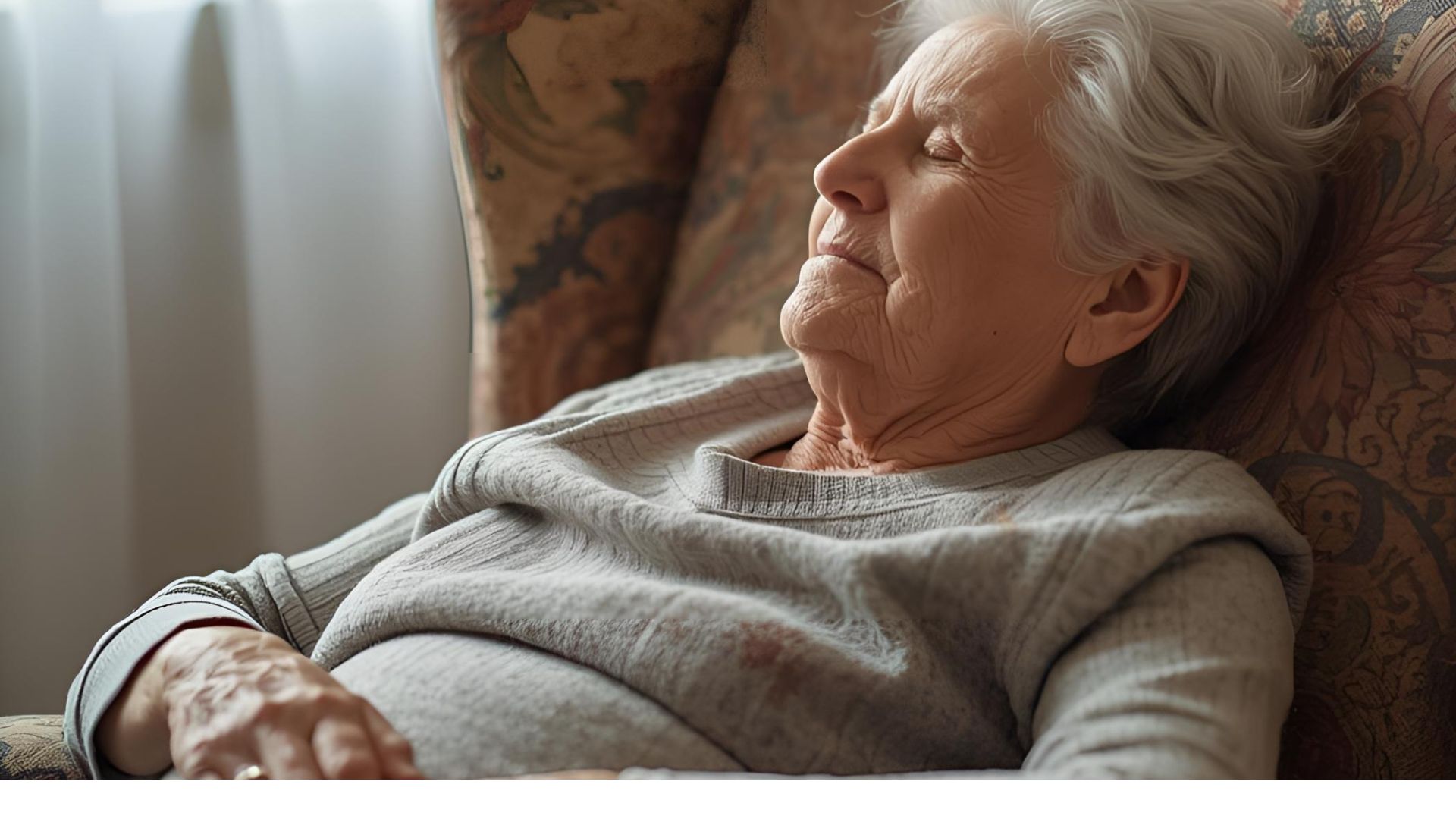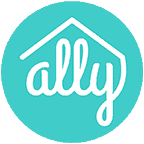
Every Missed Hour of Sleep Increases Falls Risk — Here’s How to Change That
We know falls prevention isn’t just about grab rails and mobility plans. The truth is simple: without sleep, residents fall. It’s time to make rest a clinical priority.
Why sleep belongs at the centre of falls prevention
Falls remain one of the biggest risks to older people’s health and independence. Half of adults over 80 experience at least one fall a year, and too often the consequences are devastating – from fractured hips to avoidable hospital admissions, to permanent loss of mobility and confidence.
During Falls Awareness Week many will focus on mobility aids, safe footwear, and environmental design. All essential. But there’s a missing piece in the falls conversation: sleep.
The Sleep Gap report, produced by Care England and Ally Cares, revealed that UK care home residents average less than five hours of uninterrupted rest each night. Broken sleep affects balance, coordination, alertness, and strength — exactly the functions needed to stay upright and safe.
The evidence is undeniable:
- 63% fewer unwitnessed night-time falls in homes adopting sleep-positive care
- Residents awake 50% less during the night, cutting falls risk in half
- Up to 56% fewer hospital admissions when sleep is actively protected
As Prof. Martin Green OBE, Chief Executive of Care England, put it:
“Sleep is not a luxury; it is a necessity. It is a cornerstone of health, recovery, and wellbeing.”
Fact Box: The Sleep Gap in numbers
- < 5 hours — average uninterrupted nightly sleep for care home residents in the UK
- 63% fewer unwitnessed night-time falls in sleep-positive homes
- 50% less time awake during the night, halving falls risk
- Up to 56% fewer hospital admissions when sleep is improved
- 2 hours saved per night, per staff member, by reducing unnecessary checks
- 7kg gained in six months by one resident after improved sleep
- £3,000–£6,000 — estimated cost of each fall to the NHS
Sources: The Sleep Gap (Care England & Ally Cares, 2025); NICE; Surrey Heartlands pilot data
Case studies: falls cut through better rest
At The Lawns Care Home, Manager Melanie Dawson has seen how sleep and falls are directly linked:
“By keeping residents asleep for longer, we’re not only improving their health, we’re preventing the very accidents that can change their lives.”
At Wren Hall Nursing Home, the impact has been equally powerful. Night staff no longer disturb residents with hourly checks; instead, they respond only when needed. Residents are calmer, better rested, and safer as noted by one of the team.
“We’re catching things sooner, and residents are sleeping better. That alone reduces agitation and the need for additional meds.”
Azalea Court provides another compelling example. One resident with a tracheostomy had been too anxious to sleep with her door closed, fearing staff wouldn’t hear her if she needed suctioning. With Ally’s monitoring system in place, she finally felt safe.
“I finally feel safe at night and sleep better knowing that if I need help, I will get it,” she said.
And in another home, a resident with dementia who previously was waking throughout the night due to checks and equipment noise began sleeping in longer stretches once her environment was adjusted. Within six months she gained 7kg, her mood lifted, and her daytime risk of falls fell dramatically as she became stronger and steadier.
How resident monitoring enables safer sleep
Creating a sleep-positive environment is vital for falls prevention — but it’s only possible if staff can balance safety with rest. This is where resident monitoring technology like Ally makes the difference.
Instead of disturbing residents with routine checks, Ally’s acoustic and motion monitoring alerts staff only when help is needed. For example, if a resident is in pain, coughing, calling out, or moving unsafely, carers can respond quickly to real risks without fragmenting sleep with unnecessary interruptions.
By removing the need for constant door-opening and torchlight checks, Ally reduces noise and disturbance at night, helping residents rest for longer. The data captured also provides care teams with valuable insights into sleep patterns, falls risk, and health changes that may otherwise go unnoticed.
The result? Residents sleep better, feel safer, and experience fewer night-time accidents. Staff gain more time back, can focus on meaningful care, and are reassured that no call for help goes unheard.
Why sleep changes everything
Sleep is more than a comfort. It’s a biological necessity that underpins strength, cognition, and recovery. Residents who are overtired are more likely to trip, misjudge a step, or lose balance. By contrast, those who are well-rested arrive at mealtimes more alert, eat better, and maintain healthier weight and hydration — all factors that reduce falls risk.
Medication adherence improves too. At one Ally partner home, a resident with Parkinson’s who had regularly been refusing time-sensitive medication became far more cooperative once her sleep was protected. With medication taken on time, her mobility stabilised and her risk of falls reduced.
For staff, sleep-positive care is also a win. Homes using Ally save up to two hours per night per staff member by avoiding routine checks that disturb residents. That time can be redirected into infection control, laundry, or personalised care, creating calmer nights and safer days.
A cultural shift in safeguarding
Traditional falls prevention strategies often stop at environmental design. But as long as residents are being woken up unnecessarily, we’re working against ourselves. Protecting sleep requires a cultural shift:
- Clinical integration: using sleep data to inform care plans and spot health changes early
- Cultural change: training staff to see uninterrupted rest as safeguarding, not neglect
- Environmental adjustments: reducing light, minimising noise, removing unnecessary disruptions
- Technology enablement: using monitoring that balances safety with dignity
As Julie Burton, Head of Operations at Azalea Court summed it up:
“Our goal is that our care home feels like your own home feels at night: quiet and dark.”
A call to action this Falls Awareness Week and beyond
Every missed hour of sleep increases the risk of falls. The evidence shows that when care homes prioritise rest, residents don’t just feel better — they live safer, healthier, and longer lives.
This Falls Awareness Week and beyond, let’s recognise sleep for what it is: the overlooked foundation of falls prevention. Let’s also acknowledge that technology like Ally is key to making better sleep possible. By enabling safer nights and calmer days, monitoring supports staff, protects dignity, and helps residents live with greater independence and confidence.
Want to see how Ally can help your care home protect residents at night and reduce falls? Call us on on 0203 026 4506 or book a demo now today.
